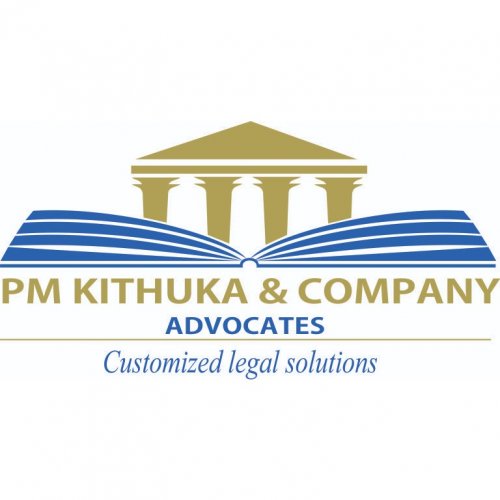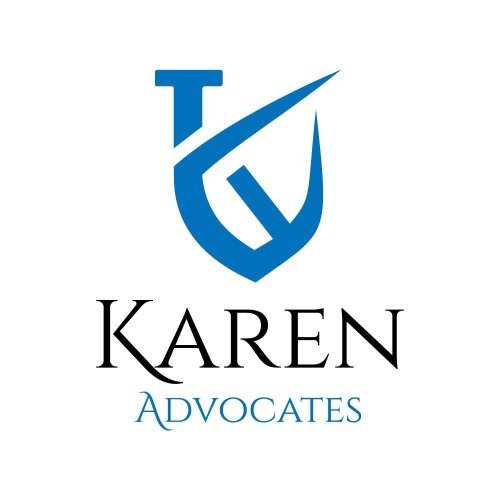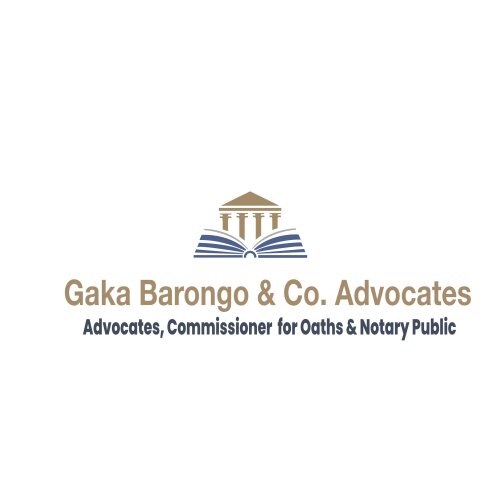Best Motorcycle Accident Lawyers in Kenya
Share your needs with us, get contacted by law firms.
Free. Takes 2 min.
Or refine your search by selecting a city:
List of the best lawyers in Kenya
About Motorcycle Accident Law in Kenya
In Kenya, motorcycle accidents have become increasingly common, largely due to the growing popularity of motorcycles as a convenient mode of transportation. These accidents can result in severe injuries and substantial property damage, prompting the need for a legal framework to address issues of liability, compensation, and road safety. The Traffic Act, Chapter 403 of the Laws of Kenya, governs road traffic regulations and highlights the responsibilities of road users, including motorcycle riders. It is augmented by regulations from the National Transport and Safety Authority (NTSA), which also plays a significant role in enforcement and accident prevention.
Why You May Need a Lawyer
In the aftermath of a motorcycle accident in Kenya, victims might find themselves in complex situations that necessitate legal assistance. Common scenarios where a lawyer can be invaluable include:
- Disputes over liability where multiple parties are involved.
- Negotiating with insurance companies for proper compensation.
- Dealing with serious injuries that result in long-term disability or significant medical expenses.
- Understanding and navigating the legal procedures involved in filing a lawsuit against a negligent party.
- Handling cases of wrongful death due to a motorcycle accident.
- Pursuing claims against employers in cases where the rider was conducting employment duties.
Local Laws Overview
Key legal considerations for motorcycle accidents in Kenya include:
- Mandatory Helmet Use: Kenyan law requires all motorcycle riders and passengers to wear helmets at all times.
- Insurance: Comprehensive insurance is not mandatory for motorcycles, but third-party insurance is required.
- Licensing: Riders must possess a valid motorcycle license, and the motorcycle must be registered with the NTSA.
- Fault and Liability: Kenya follows a fault-based system for road accidents, which means the person responsible for the accident bears financial responsibility.
- Compensation Claims: Victims can claim damages for medical expenses, loss of income, and property damage. Pain and suffering may also be compensable.
Frequently Asked Questions
1. What should I do immediately after a motorcycle accident in Kenya?
Ensure your safety first, seek medical attention, report the accident to the police, and gather evidence from the scene. Notify your insurance company as soon as possible.
2. Who is at fault in a motorcycle accident?
Fault depends on the specifics of the accident. It is often determined by traffic laws and the evidence gathered from the scene.
3. Can I claim compensation if I was not wearing a helmet?
You may still claim compensation; however, not wearing a helmet can be considered contributory negligence and may affect your claim amount.
4. How long do I have to file a claim?
The Statute of Limitations in Kenya for personal injury claims is generally three years from the date of the accident.
5. What types of compensation can I seek?
You may claim for medical expenses, lost wages, pain and suffering, and property damage.
6. Do I need a lawyer to file an insurance claim?
While not mandatory, having a lawyer can help navigate the complexities of insurance claims and ensure you receive fair compensation.
7. What if both parties are partially at fault?
Kenya follows a comparative negligence rule, which means the compensation is reduced by your percentage of fault in the accident.
8. What documents are needed for a compensation claim?
Typical documents include police reports, medical records, insurance policy details, and any receipts for medical or repair expenses.
9. Can I still claim if the at-fault party is uninsured?
Yes, but it might be more complex. A lawyer can assist in exploring alternative sources of compensation, like an uninsured motorist policy if available.
10. How do I prove liability in a motorcycle accident?
Proof can come from witness statements, accident scene photographs, police reports, and expert testimony, among other evidence.
Additional Resources
For further assistance and information, consider exploring the following resources:
- National Transport and Safety Authority (NTSA): Offers road safety information and resources.
- Kenya Traffic Police Department: Responsible for enforcing traffic laws and regulations.
- Kenya Insurance Regulatory Authority (IRA): Provides guidance on insurance policies and claims.
- Law Society of Kenya: Can help connect you with certified legal professionals.
Next Steps
If you need legal assistance regarding a motorcycle accident in Kenya, consider taking the following steps:
- Consultation: Arrange a meeting with an experienced motorcycle accident lawyer to discuss your case.
- Documentation: Gather and provide all necessary documents and evidence related to your accident.
- Legal Strategy: Work with your lawyer to develop a strategy for pursuing your claim.
- Communication: Maintain open communication with your legal advisor throughout the legal process.
- Settlement or Court: Decide on pursuing a settlement or taking the matter to court based on your lawyer's advice.
Lawzana helps you find the best lawyers and law firms in Kenya through a curated and pre-screened list of qualified legal professionals. Our platform offers rankings and detailed profiles of attorneys and law firms, allowing you to compare based on practice areas, including Motorcycle Accident, experience, and client feedback.
Each profile includes a description of the firm's areas of practice, client reviews, team members and partners, year of establishment, spoken languages, office locations, contact information, social media presence, and any published articles or resources. Most firms on our platform speak English and are experienced in both local and international legal matters.
Get a quote from top-rated law firms in Kenya — quickly, securely, and without unnecessary hassle.
Disclaimer:
The information provided on this page is for general informational purposes only and does not constitute legal advice. While we strive to ensure the accuracy and relevance of the content, legal information may change over time, and interpretations of the law can vary. You should always consult with a qualified legal professional for advice specific to your situation.
We disclaim all liability for actions taken or not taken based on the content of this page. If you believe any information is incorrect or outdated, please contact us, and we will review and update it where appropriate.
Browse motorcycle accident law firms by city in Kenya
Refine your search by selecting a city.













